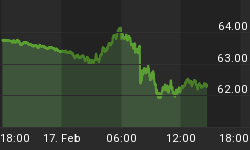It's basic cause and effect. Monetary inflation causes economic busts. And the larger the monetary inflation, the larger the bust. As brilliantly explained by the Austrians (see ![]() here), monetary inflation distorts interest rate and price signals. As a consequence, businesses embark on projects and consumers make purchases and/or investment decisions that turn out to be mistakes, malinvestments if you will, that sooner or later must be liquidated. An apparent boom turns to bust.
here), monetary inflation distorts interest rate and price signals. As a consequence, businesses embark on projects and consumers make purchases and/or investment decisions that turn out to be mistakes, malinvestments if you will, that sooner or later must be liquidated. An apparent boom turns to bust.
Founded on Chairman Bernanke's QE-based money printing programs and now increasingly being driven by private bank money creation too, the US money supply is booming. TMS2 (TMS for True "Austrian" Money Supply), THE CONTRARIAN TAKE's broadest and preferred US money supply aggregate, posted another double digit year-over-year rate of increase in December, this one coming in at 11.2%. Give or take one or two basis points, that was the 49th consecutive month that TMS2 posted a double digit year-over-year rate of increase. This kind of monetary largesse says to us that an economic bust, and a pretty big one is in the offing. Indeed, the last time we saw anything even approaching a 49-month double digit rate string was the 36-month string that gave us the housing boom turn bust turn Great Recession.
The question before us is this: Are we be looking at another Great Recession? We think the answer to that question is yes. In fact, we think we are staring at the next Great(er) Recession?
Have a look at the following two charts which compare our latest installment of monetary inflation - call it the Bernanke boom-bust-to-be in honor of its founder - against the monetary inflation that produced the tech boom-bust at the turn of the millennium and the monetary inflation that gave us the housing boom-bust turn Great Recession of 2008-09. The first chart plots the year-over-year rate of change in TMS2, cycle trough to trough. The second chart plots the cumulative change...
Click here to read the rest of the article.

















